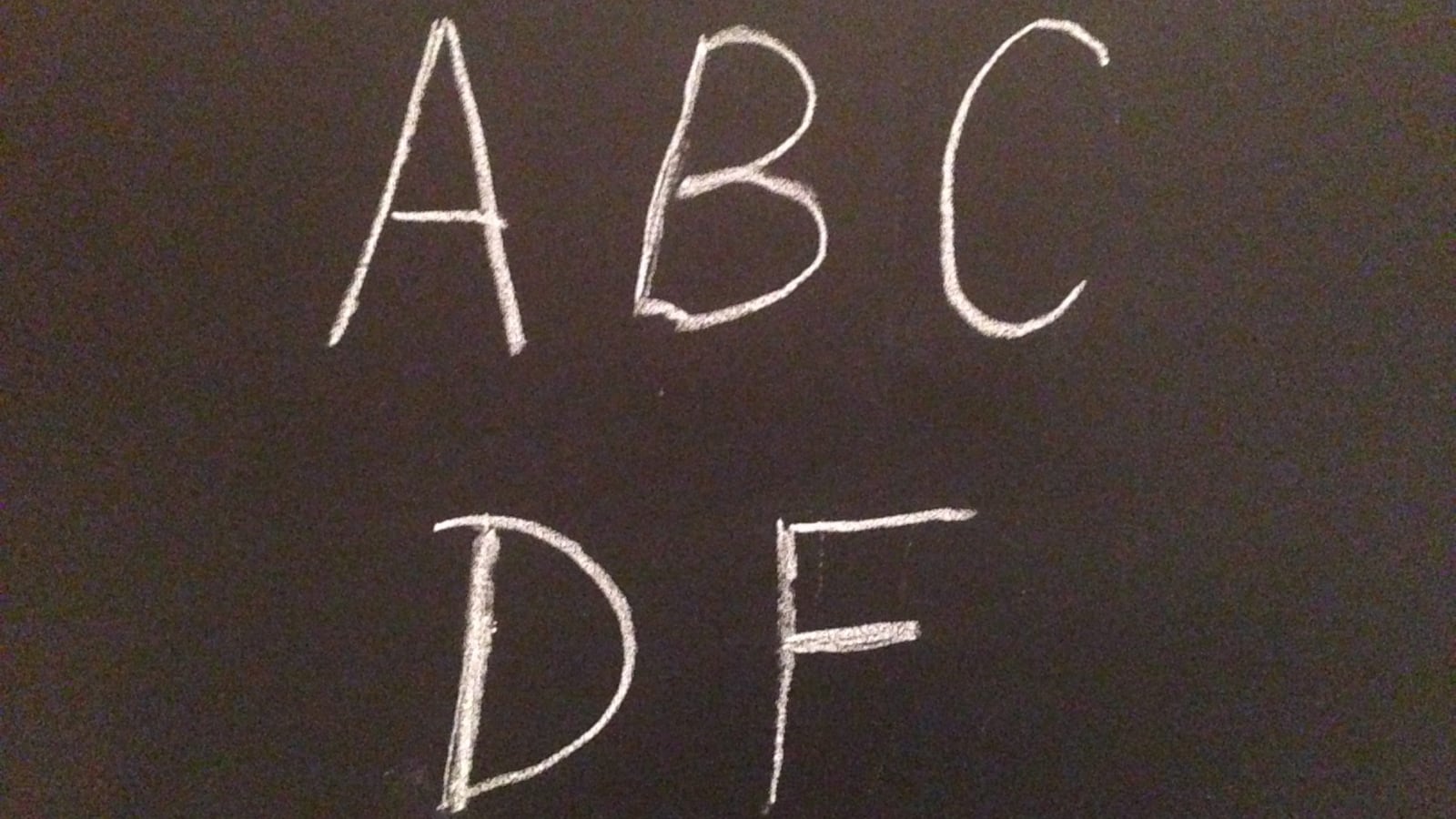Tennessee is developing a new system to evaluate its schools based on the same A-F grading scale its students receive. But not everyone agrees on what should constitute an A.
This week, officials with the State Department of Education looked closely at grading models as they seek to comply with both a new state law that requires each school be assigned a letter grade and a new federal law that focuses on all aspects of school accountability.
Education Commissioner Candice McQueen has strong feelings about what shouldn’t be a factor: poverty.
“Poverty … shouldn’t be the reason you don’t even have an opportunity to get an A,” she told the State Board of Education on Thursday.
As such, state officials are proposing two avenues for schools to get an A on achievement: 1) high test scores, which would tend to favor schools with fewer poor students and more resources, and 2) substantial test score growth, which would provide a pathway for schools that are more diverse.
But others think that opening up the top grade to schools that aren’t necessarily top performers would undermine the grading system.
Williamson County Schools Superintendent Mike Looney says growth is important, but that achievement scores are more important. He represents one of the state’s highest-performing and wealthiest districts and participated Thursday night in a town hall meeting in Nashville to discuss Tennessee’s accountability plan under the new federal Every Student Succeeds Act, or ESSA.
Earlier Thursday, Wendy Tucker, a State Board of Education member representing part of Nashville and Williamson County, expressed similar concerns. She said that including growth in a grade would be misleading, and not in the spirit of the state law.
“That statute was intended for parents to be able to look at a school and see what level of education they’re getting,” said Tucker, who is also co-CEO of Project Renaissance, a nonprofit organization focused on Nashville’s public schools. “I think growth is great. I just don’t think it’s an A.”
But McQueen and her team defended the two-pronged model. Test scores don’t paint the full picture of school quality, said Assistant Commissioner Nakia Towns. “Just because you walk into a school that has a lot of high-achieving students does not mean there’s a culture of excellence there,” Towns said.
McQueen added that the state’s education messaging as a whole has been around growth, rather than raw achievement. Education leaders often tout Tennessee as “the fastest improving in the nation” as the state’s scores on national tests have moved from the bottom to the middle.
“Growth is the model we have used, and it has really worked for Tennessee,” McQueen said. “We believe that this is a fair, just model that we’ll continue to get feedback on.”
Under the state’s ESSA plan, one group of schools could not make an A. Schools that are dubbed “priority schools” — those ranking academically in the bottom 5 percent that also have low growth scores for two consecutive years — would receive automatic Fs.
While test scores or growth would be the driving factor in a school’s grade under the state’s proposed plan, schools also would be evaluated on chronic absenteeism, graduation rates, access to college credit courses, and the proficiency rates of English language learners.
ESSA requires for the first time that states give their schools “summative” ratings. Those ratings don’t have to be A to F letter grades, but Tennessee’s legislature passed a law last year requiring schools be assigned a letter grade. The legislation was promoted by the Foundation for Excellence in Education, a research and advocacy organization founded by former Florida Gov. Jeb Bush, and has been adopted in several other states.
One, Virginia, already has repealed school letter grades, in part because ‘F’ schools had difficulty recruiting teachers. Other critics charge that letter grades lack nuance and oversimplify the link between poverty and low test scores, potentially stigmatizing low-performing schools that receive Fs, as well as students who attend those schools.

